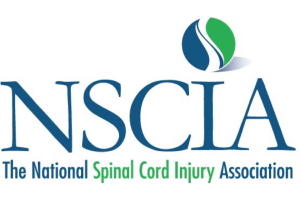Foodborne Botulism
Overview of Foodborne Botulism
Botulism is a rare but very serious muscle paralyzing illness caused by a nerve toxin (poison) produced by bacteria called Clostridium botulinum commonly found in soil and marine sediments. It is not a communicable disease so it does not spread from person to person. Persons can suffer Botulism by consuming contaminated foods containing the neurotoxin (foodborne botulism) or having an open wound infected by the C. botulinum pathogen (wound botulism). There is a third type (infant botulism) that occurs in infants (usually age 1 or younger) who have ingested the spores of the bacteria which then colonize in their intestines and release the toxin. All three types of botulism are potentially fatal and should be considered medical emergencies requiring immediate medical attention. Any case of foodborne botulism should be considered a public health emergency because many people can be poisoned by eating even a minuscule amount of a neurotoxin contaminated food. Therefore, identification of the potential food source is critical in preventing the worsening of a botulism outbreak. The classic symptoms include blurred or double vision, drooping eyelids, dry mouth, impaired speech, muscle weakness and shortness of breath. In infants, the symptoms can also include constipation, weak cry, floopy or weak movement, and lethargy. Sickness usually begins within 12-36 hours after contaminated food is consumed. Fortunately, less than 150 new cases of botulism are typically reported to the CDC each year. Of these, approximately 65% are infant botulism, 20% are wound, and the remaining 15% are foodborne. Learn more about other Types of Foodborne Illnesses.
The Causes and Prevention of Botulism
The most common food sources are home canned vegetables (especially those with low acid content such as carrots, asparagus, green beans, beats and corn) because the bacteria are anaerobic, meaning they thrive and continue to produce the harmful toxin in low oxygen environments. Indeed, Clostridium botulinum form spores which allow the bacteria to survive in a dormant state until exposed to conditions that can support growth. Commercially produced canned goods are rarely implicated because of proper cooking and canning procedures. Other known foodborne sources include home canned or uncooked fermented seafood, oils infused with garlic and other herbs, chili peppers, tomatoes and baked potatoes wrapped in aluminum foil which were allowed to cool significantly before being eaten. Honey is safe for adults, but it can cause infant botulism in babies. Therefore, honey should never be given to infants younger than one year. Other precautions include proper cooking and preparation of all home canned and preserved foods, refrigerating oils infused with garlic and other herbs, keeping wrapped baked potatoes hot until served, boiling all canned foods before eating, and avoiding any canned foods where the can is bulging or there is any puncture or other opening.
Legal Advice From a Qualified Atlanta Food Poisoning Lawyer is Available
The Atlanta law firm of Ragland Law Firm, LLC has experience handling personal injury and wrongful death lawsuits against food companies whose negligence has caused a consumer to suffer food poisoning. The firm’s trial attorneys also frequently represent consumers who have sustained bodily injury because of a foreign object in their food or suffered anaphylaxis due to an allergic food reaction. Learn more about the Food Safety Case Results which these lawyers have achieved. Ragland Law Firm, LLC has a statewide practice serving persons located in Atlanta, Dallas, Dahlonega, Tifton, Waycross, Griffin, Bainbridge and other areas of Georgia. Contact us if you or a family member has suffered Botulism or other foodborne illness and desire to consult with an experienced food safety attorney. There will be no charge for an initial consultation.









